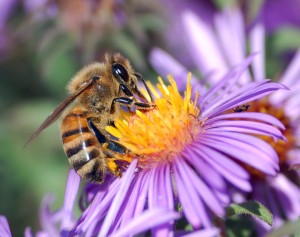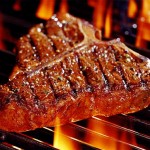A study of honeybees has shown that a lack of sleep impairs their ability to recall recent events. From Scientific American:
After characterizing how honeybees find their way home when released in a new location, the scientists captured and then released bees in unfamiliar territory some 600 meters from their hive. In addition to tracking how long the bees needed to return home, the researchers monitored bee sleep. Bees take brief naps throughout the day in addition to longer periods of nocturnal sleep. (Snoozing bees are easy to spot because their antennae droop.) The scientists made their observations both by watching bees in person and by tracking their activity via radio-frequency devices that they glued onto some of the insects.
The researchers verified first that finding a new route home did not alter other foraging behaviors, although it did lead to an increase in sleeping time in the first part of the night. Curious as to whether this change might reflect some learning or memory process, the team decided to see what happens when bee slumber is disturbed by selectively placing the insects in a box that was gently agitated for about eight hours, making it difficult for them to relax and get a good night’s sleep.
The next day the researchers found that sleepless bees and well-rested ones performed no differently when left to find their way home from a novel location. In other words, lack of sleep apparently did not inhibit the bees’ learning processes. “This suggests that there are forms of learning that seem to be totally independent of sleep,” Menzel says.
The scientists observed, however, a significant and obvious difference when bees were brought to the new spot for a second day. This time, bees that had slept well found their way home faster and fewer got lost along the way than on the previous day. That observation indicates that the well-rested bees had learned from their experience the day before. Drowsy bees, however, took about as long to return home on the second day as on the first, and were just as likely to get lost.
The study appears in the Journal of Experimental Biology.

